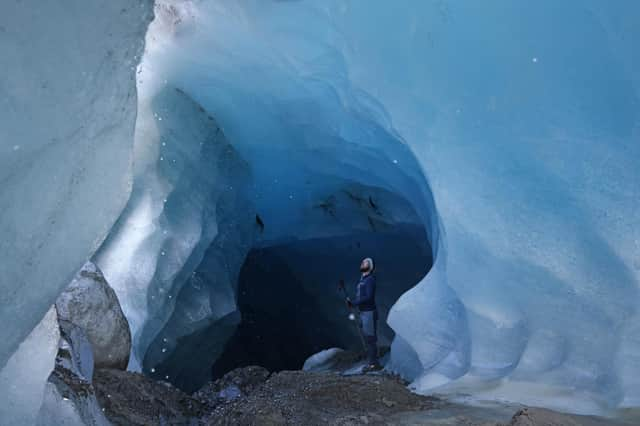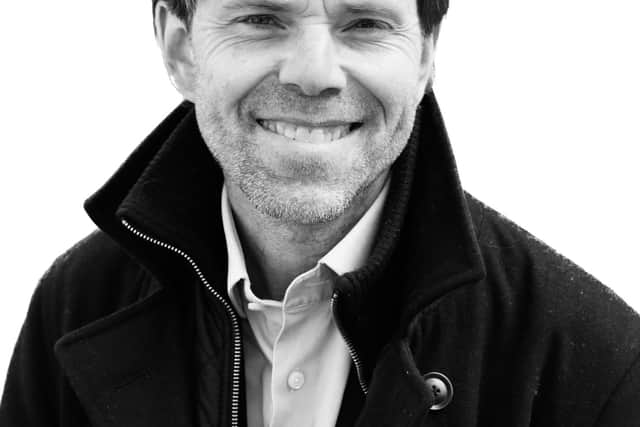Why Scotland must get real on climate crisis - Rupert Read


The story that still dominates now – even as temperatures (and fires) roar out of control in the Atlantic, in Canada, in Hawaii, in Rhodes – is one that government, citizens, and even scientists have created together: a story where there’s always “just enough time” to fix things.
We’ve been on a “last warning” to avert climate disaster for 20 years – but in reality, time is up. Anonymous polls show that climate scientists overwhelmingly now privately expect warming to exceed 1.5C, our scientifically and politically agreed “safe” limit. The question now is not whether – but how much – chaos will be left to future generations.
Advertisement
Hide AdAdvertisement
Hide AdThat is the question to which we all have to step up – and provide an answer.


There is no reprieve from this responsibility and this requirement. We should not be so naive as to think that climate isn’t an urgent problem for us, here – that we in the UK might somehow be exempt by way of geography.
Certainly the global South will experience worse impacts: but, just as "developed” societies like Britain and the USA proved surprisingly fragile in the face of Covid-19, so it may prove with climate. Societies like ours that heavily depend on long supply chains can expect to feel heavily the coming disruptions in world food production, for example.
Nor can there be any assumption that Scotland, by virtue of being further north, is safer than the rest of Britain. Populations in cooler latitudes might get off more lightly; but equally they may not.
Huge levels of ice-melt in the Arctic are causing unprecedented amounts of cold fresh water to pour into the north Atlantic, threatening the Gulf Stream, and the lesser-known, but even more important ‘Atlantic Meridian Overturning Circulation’.
It is quite possible that the effects will be felt soon – well within a generation – making Britain’s climate colder (and drier). If this occurs – and if I were a betting man, I’d bet on it – then it will be very bad indeed for agriculture. And especially bad for Scotland.
The extraordinary measures our negligent leaders must now take to limit damage and navigate instability can’t be summoned only by “activists”.
Such action will require energetic public backing – so the time has passed for protecting the public from reality. Indeed, millions already know that things are worse than governments admit: from 40C heatwaves to droughts and flooded high streets, every year the weather brings the vicious reality of climate breakdown home in a new way.
Advertisement
Hide AdAdvertisement
Hide AdBut people aren’t curling up in despair, as some might expect. Many are turning anxiety into action; as we’ve always done in the most challenging times.
In workplaces, communities and wherever people have power they are taking climate action into their own hands – from towns working towards net zero, to figures in law, business and finance, lobbying for ambitious climate policy. It is vital to acknowledge and encourage this process.
Scotland as a nation has already grasped this need and must urgently spread the word among its cities, towns and villages. We must all now recognise ourselves as the climate majority: the citizen energy that will demand unprecedented action to protect our world.
What is coming is by no means as simple as global over-heating. What is coming is climate chaos, including chronic uncertainty.
We need to face this bravely. We need to prepare with determination. We need to amplify pressure on authorities to act – and use the power we have ourselves. We need to rise together to THE challenge of our time.
We need to bear in mind that the only real question our kids will have for us, in a generation’s time, is: ‘What did you do, once you knew?’
Dr Rupert Read, author of Why Climate Breakdown Matters (Bloomsbury Press) is In Conversation tomorrow (August 27) at 12 noon with Graham Spiers at the New Town Theatre 96 George Street. See Fringe website for details.
Comments
Want to join the conversation? Please or to comment on this article.